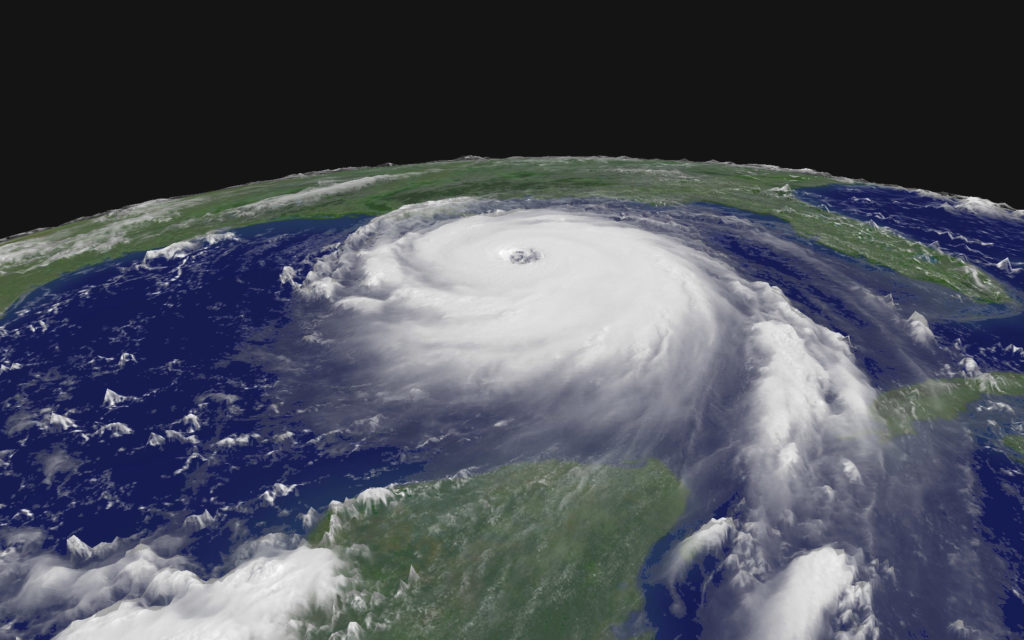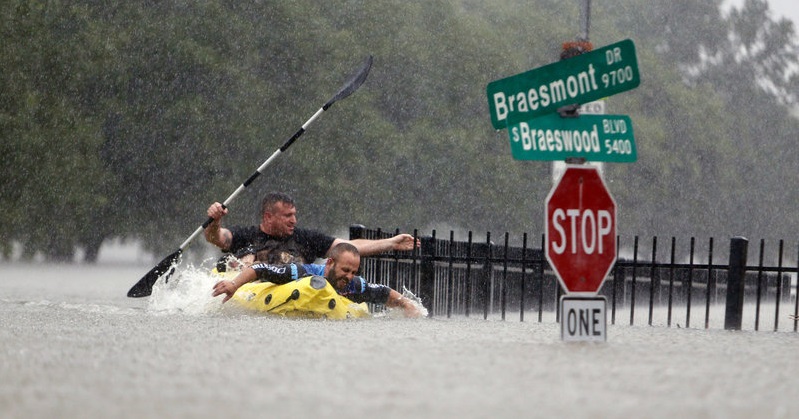
American Logistics Aid Network calls on logistics community to make donations that do not tax supply chain capacity.
Humanitarian logistics efforts in the United States were elevated today, as disaster response professionals wrestled with a storm the likes of which the nation has never seen.
Tropical storm Harvey, after hammering a large swath of the Texas Gulf Coast on Friday and Saturday with rain an “Category 4” hurricane winds, continued today to swamp Houston, Texas, the fourth most populous U.S. city, with rainfall that will likely end up being measured in feet rather than inches.

U.S. Federal Emergency Management Administrator Brock Long today called Harvey a “landmark event” for Texas and for the nation. Kathy Fulton, executive director of the American Logistics Aid Network (ALAN), a nonprofit group that connects logistics resources with disaster relief and recovery efforts, labeled Harvey a “historic and catastrophic” storm.
Moving at only 2 to 3 miles per hour as of this morning, Harvey is expected to head out to the Gulf of Mexico and gather more moisture through evaporation from the Gulf’s surface before returning to Houston and Galveston by mid-week. In the interim, Harvey will douse neighboring Louisiana, including New Orleans, so heavily that President Trump has declared the state a disaster area so that it qualifies for federal aid.

What makes Harvey so frightful is its slow-moving nature and its trajectory over a massive body of water rather than land. Nearly all storms depart after a day or two and then weaken rapidly as they move over land and are deprived of sources of moisture. Harvey, by contrast, is in an elongated meandering phase and will spend the next two days recharging its batteries over the Gulf. Once it returns to Houston and Galveston, Texas, 50 miles from Houston, it may stall there for two or three additional days.
By the time Harvey leaves for good around week’s end, it could dump a staggering 50 inches of rain on the Houston area, about as much as it gets in a year. What’s more, Houston is a region of flat topography that’s prone to flooding and isn’t known to have optimal drainage infrastructure. The extended rains and flooding, which are swelling waterways, rivers, and bayous and making key road and rail transport arteries impassable, mean it will take longer for ground transportation to resume, Fulton said. This hampers response and recovery activities, she said.
ALAN’s last communiqué, issued shortly before midnight Sunday, urged those wanting to help to “donate and volunteer responsibly so as not to consume supply chain capacity with items that are not needed.” Cash donations made to reputable nonprofit organizations allow them to “purchase exactly what is needed in the right configurations and quantities, and to help restart the local economy,” according to the communiqué.
Dry clothing, food, and assets to be deployed for high-water rescue efforts are in greatest demand right now, according to state and local officials quoted in news reports.
On Sunday, ALAN said it had coordinated the transportation of cots from San Antonio, Texas, to Houston and provided information on sources of swift water rescue teams, drones that can be used for damage assessments, portable medical clinics, and rotor-powered aircraft for delivery of pharmaceuticals to clinics and hospitals. ALAN said it continues to request information—which will be kept confidential—on supply chain disruptions. (More information on requests for aid that ALAN has received can be found on its website.)
For now, transport providers can do little but wait out Harvey’s wrath. The ports of Houston and Galveston remained closed today, and port officials will assess the situation later in the day and into the evening to determine if they will stay closed tomorrow. The U.S. Postal Service has suspended regular mail service as well its Priority Mail Express overnight delivery service until late Wednesday throughout virtually all of Houston. Atlanta-based UPS Inc. reported this morning that 728 ZIP codes across south Texas, as well as four in Louisiana, are experiencing service disruptions of one degree or another.
Omaha, Neb.-based rail giant Union Pacific Corp., whose network feeds directly into the affected regions, has issued embargoes on all traffic destined to Houston and surrounding areas. The railroad said it is not running scheduled train service to and from Houston at least through Monday, while facility switching in Houston and surrounding areas will remain suspended for at least another 48 to 72 hours.
According to consultancy FTR, Harvey will “strongly affect” more than 7 percent of U.S. trucking, with about 10 percent of all trucking operations affected during the first week. A portion of the country’s trucking network will be impaired for as long as two weeks, FTR said. After a month, about 2 percent of the national network and one-quarter of the regional system—skewed heavily towards the Gulf—will be impacted. Regional services will absorb most of the dislocation, FTR said.
www.supplychainquarterly.com
